Leveraging AI in Crypto Games: Enhancing Player Experience and Game Design
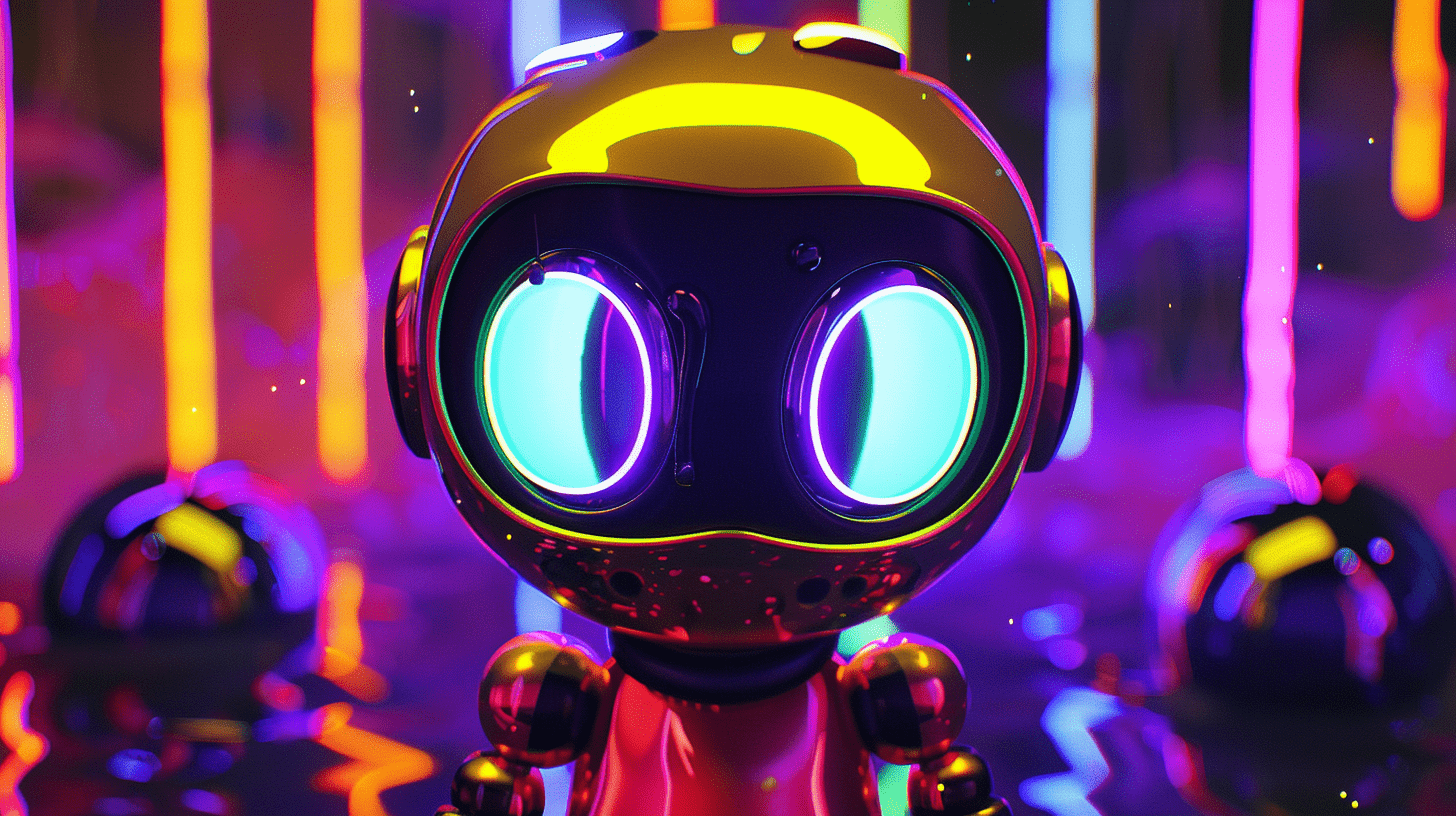
Artificial Intelligence (AI) has become a cornerstone of modern technology, revolutionizing various industries, including gaming. In traditional gaming, AI has been used to create more immersive environments, enhance NPC (Non-Playable Character) behavior, and provide personalized experiences for players. As the gaming industry evolves, AI’s role is expanding, particularly within the emerging field of crypto games.
Crypto games, which merge blockchain technology with gaming, are increasingly integrating AI to enhance player experience and streamline game design. This fusion of AI and blockchain is not only improving gameplay but also creating new possibilities for dynamic content, personalized interactions, and complex in-game economies.

Understanding AI in Crypto Games
Artificial Intelligence in gaming refers to the use of machine learning, algorithms, and data-driven models to create more dynamic, responsive, and immersive gaming experiences. In the context of crypto games, AI is leveraged not just to enhance gameplay but also to manage complex systems like in-game economies, procedural content generation, and player interactions.
Definition and Types of AI Used in Gaming
AI in gaming typically involves various forms of machine learning, neural networks, and algorithmic decision-making. The most common types of AI used in gaming include:
- Reactive AI
Used to control NPC behavior, making characters respond to player actions in real-time.
- Procedural AI
Generates vast amounts of content, such as levels, maps, and quests, based on predefined rules and algorithms.
- Predictive AI
Anticipates player behavior and adapts the game environment accordingly to provide a more personalized experience.
- Adaptive AI
Learns from player actions and evolves gameplay over time, ensuring the game remains challenging and engaging.
Key Differences Between AI in Traditional Games and AI in Crypto Games
While traditional games have long utilized AI for gameplay enhancement, crypto games integrate AI in unique ways due to the decentralized and blockchain-based nature of these platforms:
- Decentralization
In crypto games, AI is often used to manage decentralized systems, such as player-driven economies and governance models, ensuring fairness and balance without the need for centralized control.
- Blockchain Integration
AI in crypto games interacts with blockchain technology to verify transactions, manage smart contracts, and secure in-game assets. This adds an extra layer of complexity, as the AI must operate within the transparent and immutable framework of the blockchain.
- Player Ownership
In crypto games, players often have ownership of in-game assets as NFTs (Non-Fungible Tokens). AI is used to manage the creation, distribution, and valuation of these assets, ensuring that they retain value and scarcity within the game’s ecosystem.
The Importance of AI in the Development and Evolution of Crypto Games
AI plays a crucial role in the development and continuous evolution of crypto games. Here’s why:
- Enhanced Player Experience
AI enables more personalized and adaptive gameplay experiences, making crypto games more engaging and rewarding. By analyzing player behavior, AI can tailor challenges, rewards, and interactions to individual preferences.
- Efficient Game Design
AI helps developers create vast and complex game worlds with minimal manual intervention. Procedural generation powered by AI can produce unique environments, characters, and quests, ensuring that no two gameplay experiences are the same.
- Sustainable Economies
AI is essential for maintaining balanced and sustainable in-game economies in crypto games. By monitoring and adjusting economic variables in real-time, AI ensures that in-game currencies, assets, and rewards remain valuable and equitable.
- Scalability
As crypto games attract larger player bases, AI becomes critical for scaling game environments and maintaining smooth operation across decentralized networks. AI can manage the increased complexity and data flow, ensuring a seamless experience for all players.
AI is not just a tool for enhancing gameplay in crypto games; it is a foundational technology that drives the development, management, and evolution of these decentralized platforms. By leveraging AI, crypto games can offer more dynamic, personalized, and sustainable experiences for players, pushing the boundaries of what is possible in the gaming industry.

Enhancing Player Experience Through AI
Artificial Intelligence is revolutionizing the player experience in crypto games by offering more personalized, dynamic, and supportive gameplay. By leveraging AI, game developers can create environments that adapt to individual player behaviors, offer evolving content, and provide tailored assistance, making the gaming experience more engaging and accessible.
Personalized Gameplay Experiences: How AI Adapts to Individual Player Behavior
AI in crypto games can analyze and learn from player actions, preferences, and gameplay patterns to create a more personalized experience. This can manifest in several ways:
- Adaptive Difficulty
AI can adjust the difficulty level of the game based on a player’s skill and progress. For example, if a player consistently excels in certain challenges, the AI might introduce more complex obstacles to maintain engagement and satisfaction.
- Customized Content
AI can tailor in-game content, such as quests, rewards, or challenges, to align with a player’s interests and playstyle. This ensures that each player’s journey through the game feels unique and specifically crafted for them.
- Behavioral Insights
By analyzing data on how players interact with the game, AI can provide insights that help developers refine and improve gameplay. This data-driven approach ensures that the game evolves in a way that meets the needs and preferences of its player base.
AI-Driven Dynamic Content: Creating Responsive and Evolving Game Worlds
One of the most exciting applications of AI in crypto games is the creation of dynamic content that evolves in response to player actions and external factors:
- Procedural Generation
AI can generate vast and intricate game worlds that evolve based on player decisions. This means that the environment, characters, and even the storyline can change, offering a new experience each time the game is played.
- Real-Time Adaptation
AI can modify the game world in real-time, responding to player interactions or events within the game. For example, if a player conquers a region in a virtual world, the AI might generate new challenges or opportunities in nearby areas to keep the gameplay fresh and engaging.
- Event-Driven Content
AI can trigger special events, quests, or challenges based on in-game milestones or player achievements. This keeps the game environment lively and responsive, encouraging players to remain active and engaged.
AI in Player Assistance and Support: Enhancing Accessibility and Improving Game Onboarding
AI plays a crucial role in making crypto games more accessible and user-friendly, particularly for new players who may be unfamiliar with blockchain technology:
- Intelligent Tutorials
AI can provide personalized tutorials that adapt to the player’s level of experience and learning pace. This ensures that new players can quickly understand the game mechanics and get up to speed without feeling overwhelmed.
- Adaptive Help Systems
AI-driven help systems can offer real-time assistance based on the player’s current situation. For example, if a player struggles with a particular task or challenge, the AI can offer hints, tips, or even adjust the gameplay to make it more manageable.
- Enhanced Onboarding
AI can streamline the onboarding process by guiding players through the initial setup, including creating wallets, purchasing tokens, and understanding game mechanics. This reduces the learning curve and makes crypto games more accessible to a broader audience.
AI significantly enhances the player experience in crypto games by creating personalized, dynamic, and supportive environments. By adapting to individual behaviors, generating responsive content, and providing tailored assistance, AI ensures that players remain engaged, satisfied, and fully immersed in the game world. This not only improves the overall gameplay experience but also helps attract and retain a diverse and active player base.

AI's Role in Game Design and Development
Artificial Intelligence is playing an increasingly vital role in game design and development, particularly in the realm of crypto games. By leveraging AI, developers can create more immersive and dynamic game worlds, enhance the realism of NPCs and in-game economies, and streamline the entire development process. These advancements are transforming how games are built and experienced, leading to richer, more engaging gameplay.
Procedural Content Generation: Using AI to Create Vast, Unique In-Game Environments and Assets
Procedural content generation, powered by AI, allows developers to create expansive and diverse game environments with minimal manual input. This technology generates game worlds, landscapes, levels, and assets based on algorithms, ensuring that no two experiences are exactly the same:
- Infinite Possibilities
AI-driven procedural generation can create virtually limitless variations of in-game environments, from sprawling landscapes to intricate dungeon layouts. This not only enhances replayability but also ensures that players encounter new challenges and experiences each time they play.
- Efficiency in Design
By automating the creation of vast and detailed game worlds, AI reduces the time and resources required for manual design. This allows developers to focus on refining core gameplay elements while AI handles the heavy lifting of content creation.
- Dynamic World Evolution
AI can also enable game worlds to evolve over time, responding to player actions or in-game events. For example, a forest might grow denser or a city might expand as players progress, creating a living, breathing world that adapts to the narrative.
AI-Driven NPCs and In-Game Economies: Creating Realistic Interactions and Economies
AI is crucial in enhancing the realism and complexity of NPCs and in-game economies, making them more responsive and lifelike:
- Intelligent NPC Behavior
AI allows NPCs to exhibit more realistic and dynamic behaviors, reacting to player actions, adapting to different situations, and even developing relationships with players or other NPCs. This creates a more immersive experience, where interactions feel meaningful and authentic.
- Complex In-Game Economies
AI can manage and balance in-game economies, ensuring that the supply and demand of resources, goods, and currency are realistic and sustainable. By dynamically adjusting economic variables based on player actions and market conditions, AI helps maintain a stable and engaging economic environment within the game.
- Personalized NPC Interactions
AI can tailor NPC interactions based on individual player preferences and past behaviors, creating a more personalized and engaging experience. This could involve NPCs offering specific quests, trading opportunities, or storylines that align with the player’s playstyle.
Streamlining Game Development: How AI Tools Are Speeding Up the Design and Testing Process
AI is not only enhancing the final product but also revolutionizing the game development process itself, making it faster, more efficient, and more innovative:
- Automated Testing
AI-driven tools can automate the testing process, identifying bugs, performance issues, and gameplay imbalances more quickly and accurately than human testers. This speeds up the development cycle and ensures a higher-quality product at launch.
- AI-Assisted Design
AI can assist designers by generating assets, suggesting design improvements, or even creating entire game mechanics. These tools help developers experiment with new ideas and iterate more rapidly, leading to more innovative and polished games.
- Predictive Analytics
AI can analyze player data during development to predict how different game features will be received. This allows developers to make data-driven decisions about which features to refine, expand, or remove, ensuring that the final game resonates with its target audience.
AI is revolutionizing game design and development by automating complex processes, enhancing realism, and enabling the creation of vast, dynamic game worlds. Through procedural content generation, intelligent NPCs, and streamlined development workflows, AI is helping developers push the boundaries of what is possible in crypto gaming, leading to richer, more immersive experiences for players.

Case Studies of AI in Action in Crypto Games
Artificial Intelligence is increasingly being integrated into crypto games, leading to significant advancements in gameplay, player engagement, and overall game design.
Analysis of Specific Crypto Games That Effectively Utilize AI
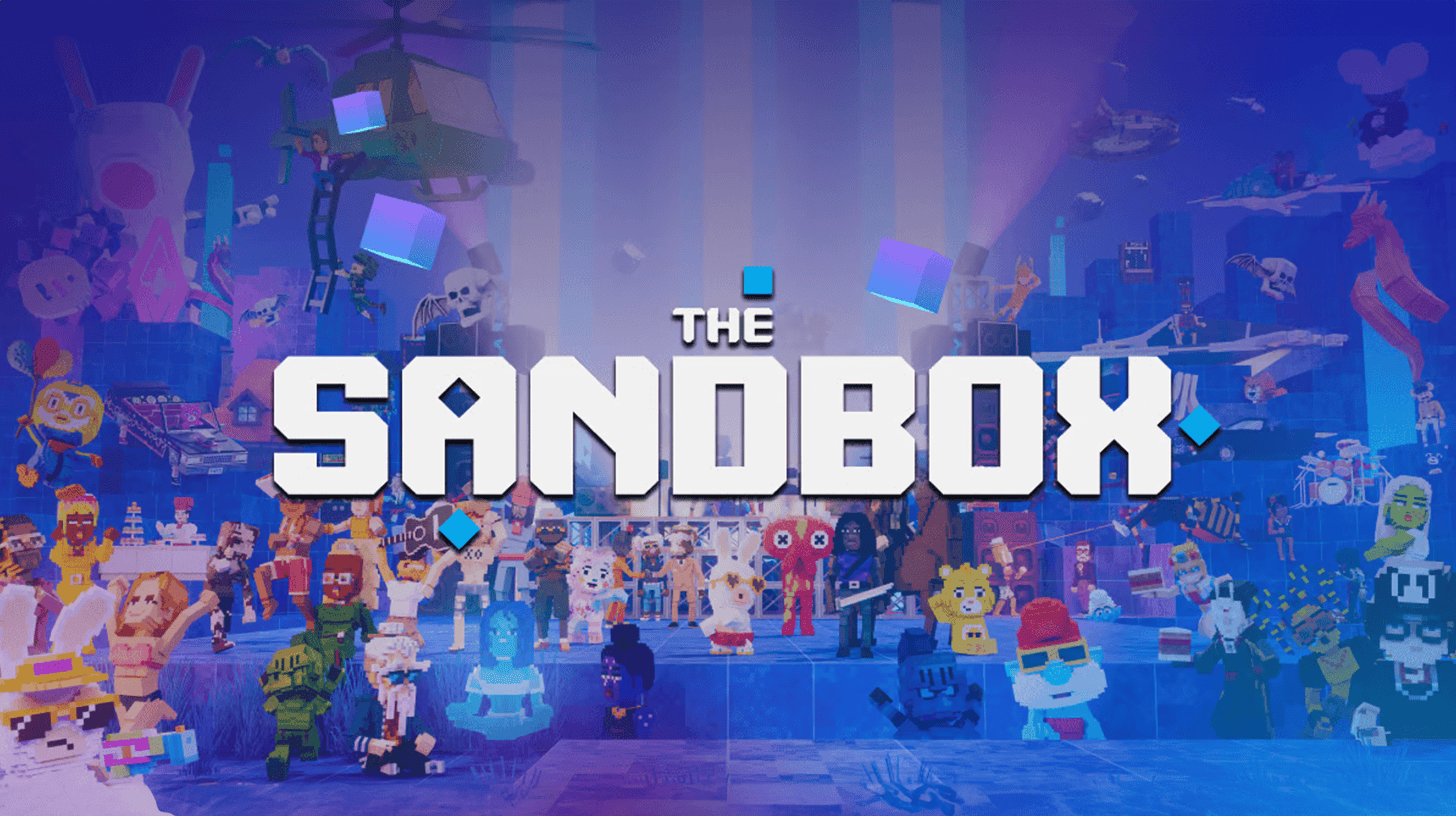
The Sandbox
The Sandbox is a decentralized virtual world where players can create, own, and monetize their gaming experiences. AI is used extensively in the game to generate dynamic environments and assist players in creating unique content.
The game leverages AI for procedural content generation, allowing players to create complex landscapes, structures, and game mechanics with minimal manual input. This not only enhances the creative potential of the platform but also ensures that the virtual world remains diverse and engaging.
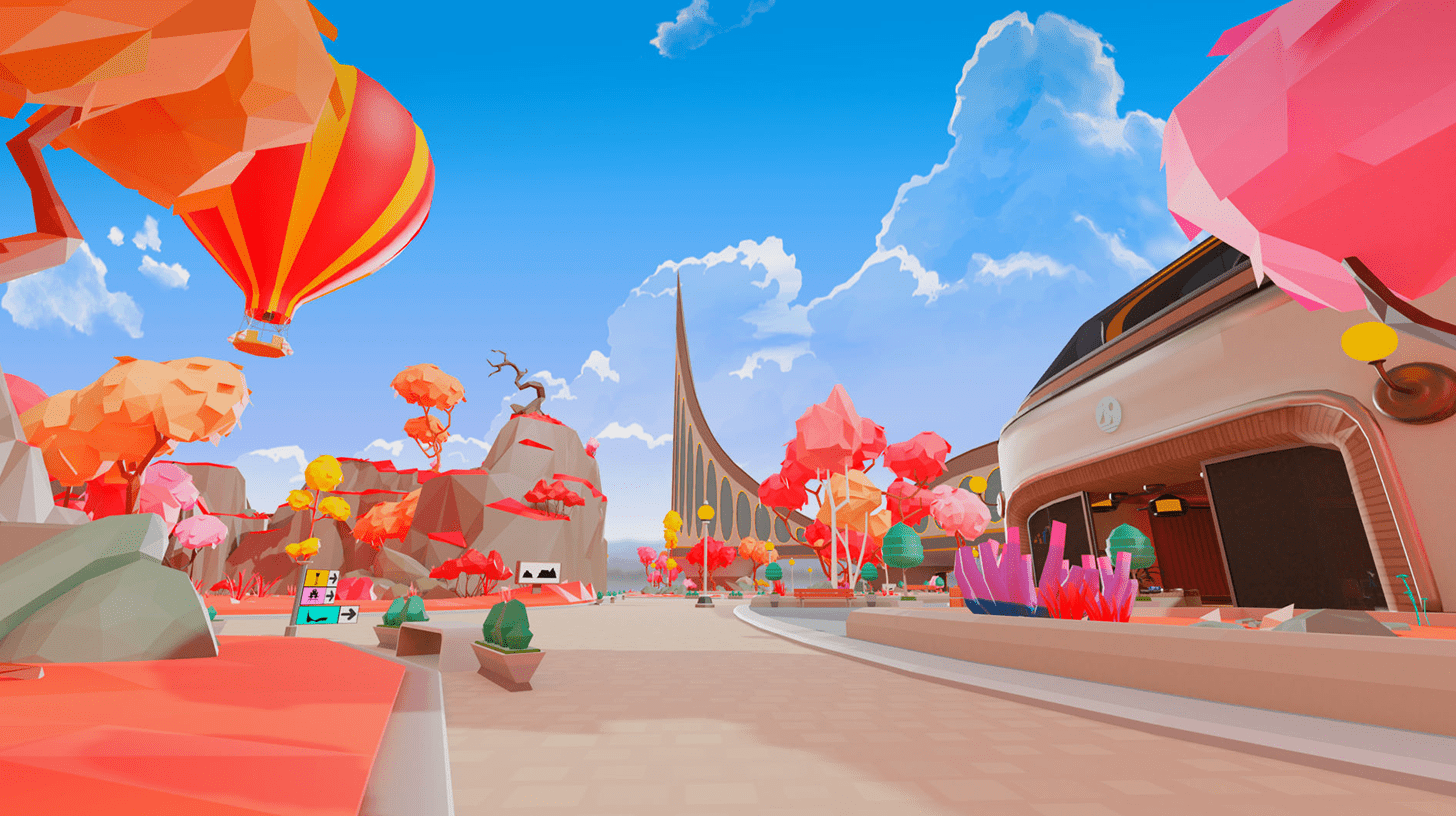
Decentraland
Decentraland is another decentralized virtual reality platform that uses AI to enhance user interactions and in-game experiences. Players can purchase and develop virtual land, and AI helps manage the complex economy and social interactions within the platform.
In Decentraland, AI-driven NPCs provide players with a more immersive experience by adapting to player behavior and facilitating more realistic interactions. Additionally, AI helps manage the in-game economy, ensuring that the supply and demand of resources and assets are balanced.
Examples of AI-Driven Features That Have Enhanced Gameplay and Player Retention
Adaptive Difficulty in Axie Infinity
Axie Infinity, a popular play-to-earn game, uses AI to adapt the difficulty of battles based on the player’s skill level. This ensures that both new and experienced players remain challenged and engaged, enhancing overall retention.
By dynamically adjusting the difficulty, Axie Infinity keeps players motivated to continue playing and improving their skills, leading to higher levels of engagement and satisfaction.
Procedural Quest Generation in CryptoBlades
CryptoBlades, a blockchain-based RPG, utilizes AI to generate procedural quests and challenges that are unique to each player. These quests are tailored based on the player’s past performance and preferences.
This AI-driven feature provides a personalized gaming experience, encouraging players to return regularly to see what new challenges await, thereby boosting retention.
Lessons Learned from the Integration of AI in These Games
- Importance of Balance Between Automation and Player Control
While AI can greatly enhance the gaming experience, it’s crucial to strike a balance between automation and player control. Games like The Sandbox and Decentraland have successfully integrated AI while still giving players the freedom to create and interact as they wish. Over-reliance on AI can lead to a loss of player agency, which can detract from the overall experience.
- AI Must Enhance, Not Overwhelm
AI should be used to enhance gameplay without overwhelming players. In Axie Infinity and CryptoBlades, AI is used to adapt difficulty and generate content that enriches the player experience without making the game feel automated or impersonal. The key is to use AI as a tool to augment the player’s journey, not to replace the human element of gaming.
- Continuous Learning and Adaptation
The integration of AI in crypto games is an ongoing process that requires continuous learning and adaptation. Developers must monitor how AI-driven features impact gameplay and player behavior, making adjustments as needed to improve the experience. Games like Axie Infinity have demonstrated the importance of iterating on AI models to ensure they remain effective and engaging over time.
The effective use of AI in crypto games has led to significant advancements in gameplay and player retention. By analyzing successful case studies like The Sandbox, Decentraland, Axie Infinity, and CryptoBlades, we can see that AI has the potential to greatly enhance the gaming experience when implemented thoughtfully. The lessons learned from these games underscore the importance of balancing AI-driven automation with player control, using AI to enhance rather than overwhelm, and continuously refining AI systems to adapt to player needs.
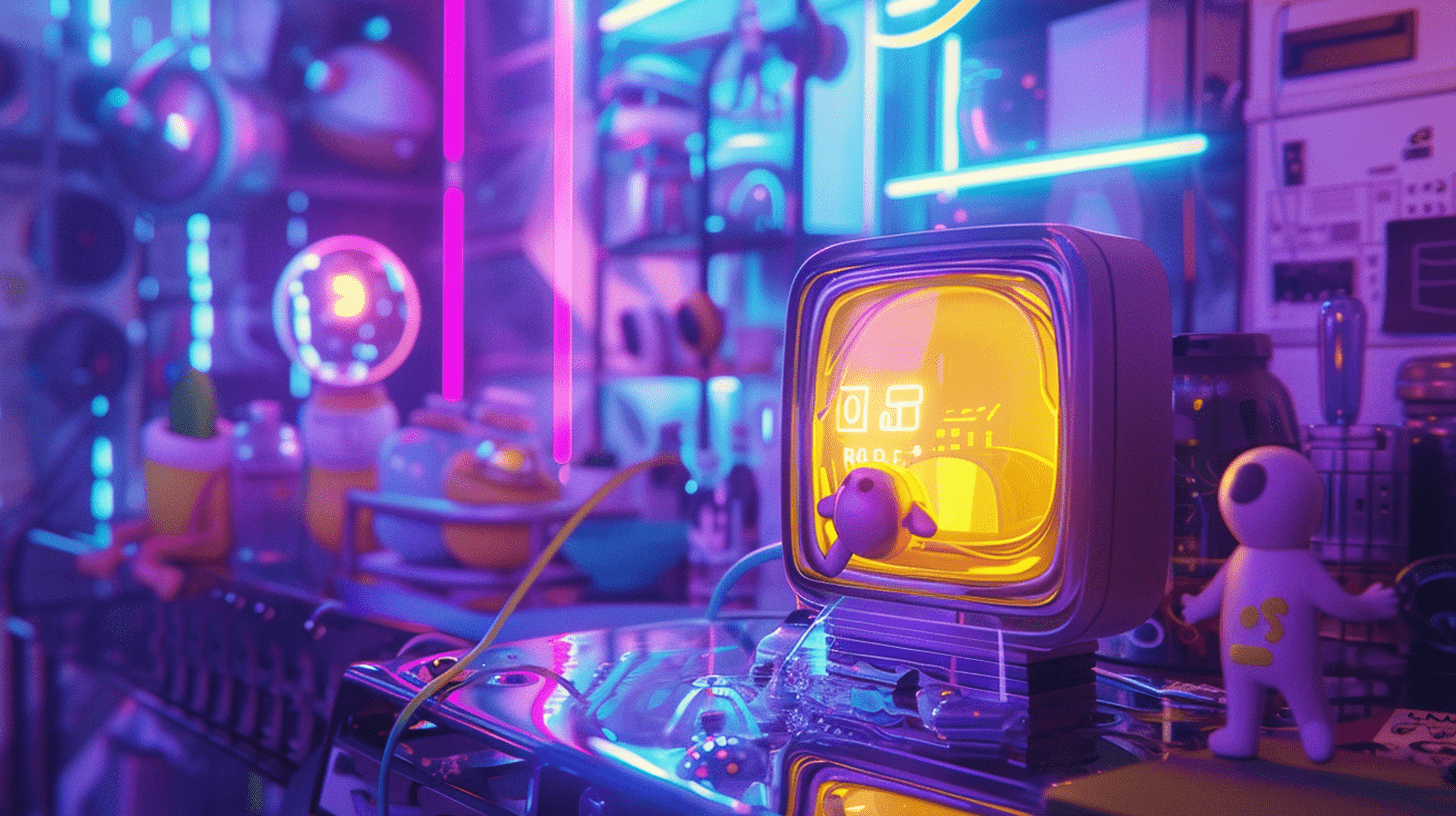
Challenges and Considerations
As AI becomes increasingly integrated into crypto games, developers and players alike must navigate several challenges and considerations. These include technical limitations, ethical concerns, the balance between AI-driven automation and human creativity, and ensuring fairness and transparency in game mechanics and economies. Addressing these challenges is crucial for the successful implementation of AI in the crypto gaming space.
Potential Challenges of Implementing AI in Crypto Games
Technical Limitations
- Scalability
AI algorithms, especially those used for real-time decision-making and content generation, can be resource-intensive. This can lead to scalability issues, particularly in blockchain environments where transaction processing speeds and costs are already concerns. Ensuring that AI systems can scale effectively without compromising performance or increasing costs is a significant challenge.
- Integration with Blockchain
Integrating AI with blockchain technology poses its own set of challenges. Blockchain's decentralized nature can make it difficult to implement AI systems that rely on centralized data processing. Additionally, ensuring that AI can operate within the constraints of blockchain’s transparency and immutability is a technical hurdle that requires innovative solutions.
Ethical Concerns
- Data Privacy
AI systems often rely on large amounts of data to function effectively. In the context of crypto games, this raises concerns about player data privacy and how this data is collected, stored, and used. Ensuring that AI systems comply with privacy standards and that players' data is protected is crucial.
- Bias and Fairness
AI systems can inadvertently introduce bias into gameplay, particularly if the data they are trained on is biased. This can lead to unfair advantages or disadvantages for certain players, undermining the integrity of the game. Addressing these ethical concerns is essential for maintaining player trust and fairness.
Balancing AI-Driven Automation with Human Creativity in Game Design
- Maintaining Human Creativity
While AI can automate many aspects of game design, it is important to ensure that human creativity remains at the core of the process. AI should be used to enhance and support creative decisions, not replace them. Developers must find a balance between leveraging AI for efficiency and allowing human designers to inject personality, storytelling, and artistic vision into the game.
- Avoiding Over-Automation
Over-reliance on AI-driven automation can lead to games that feel formulaic or lacking in originality. To avoid this, developers should use AI to handle repetitive or data-driven tasks, while reserving key creative decisions for human designers. This approach ensures that games retain their uniqueness and are able to surprise and delight players.
Ensuring Fairness and Transparency in AI-Driven Game Mechanics and Economies
- Transparent AI Systems
For players to trust AI-driven game mechanics and economies, these systems must be transparent. Players should understand how AI decisions are made, particularly in areas that affect gameplay balance, rewards, and in-game economies. Providing clear explanations of AI processes and allowing players to see the underlying algorithms or logic can help build trust.
- Fair and Equitable Economies
AI plays a significant role in managing in-game economies, from pricing items to distributing rewards. It is crucial that these systems are fair and do not inadvertently favor certain players or groups. Regular audits of AI-driven economic systems, as well as adjustments based on player feedback, can help ensure that the game remains balanced and fair for all participants.
- Addressing Exploits
AI systems in crypto games must be robust enough to prevent exploits or manipulations. Players may attempt to game the system, particularly in decentralized environments where financial incentives are involved. Ensuring that AI can detect and respond to such behavior is essential for maintaining the integrity of the game.
While AI offers tremendous potential for enhancing crypto games, its implementation comes with significant challenges and considerations. Developers must navigate technical limitations, address ethical concerns, balance automation with creativity, and ensure fairness and transparency in AI-driven systems. By tackling these challenges head-on, the crypto gaming industry can harness the full power of AI while maintaining player trust and engagement.
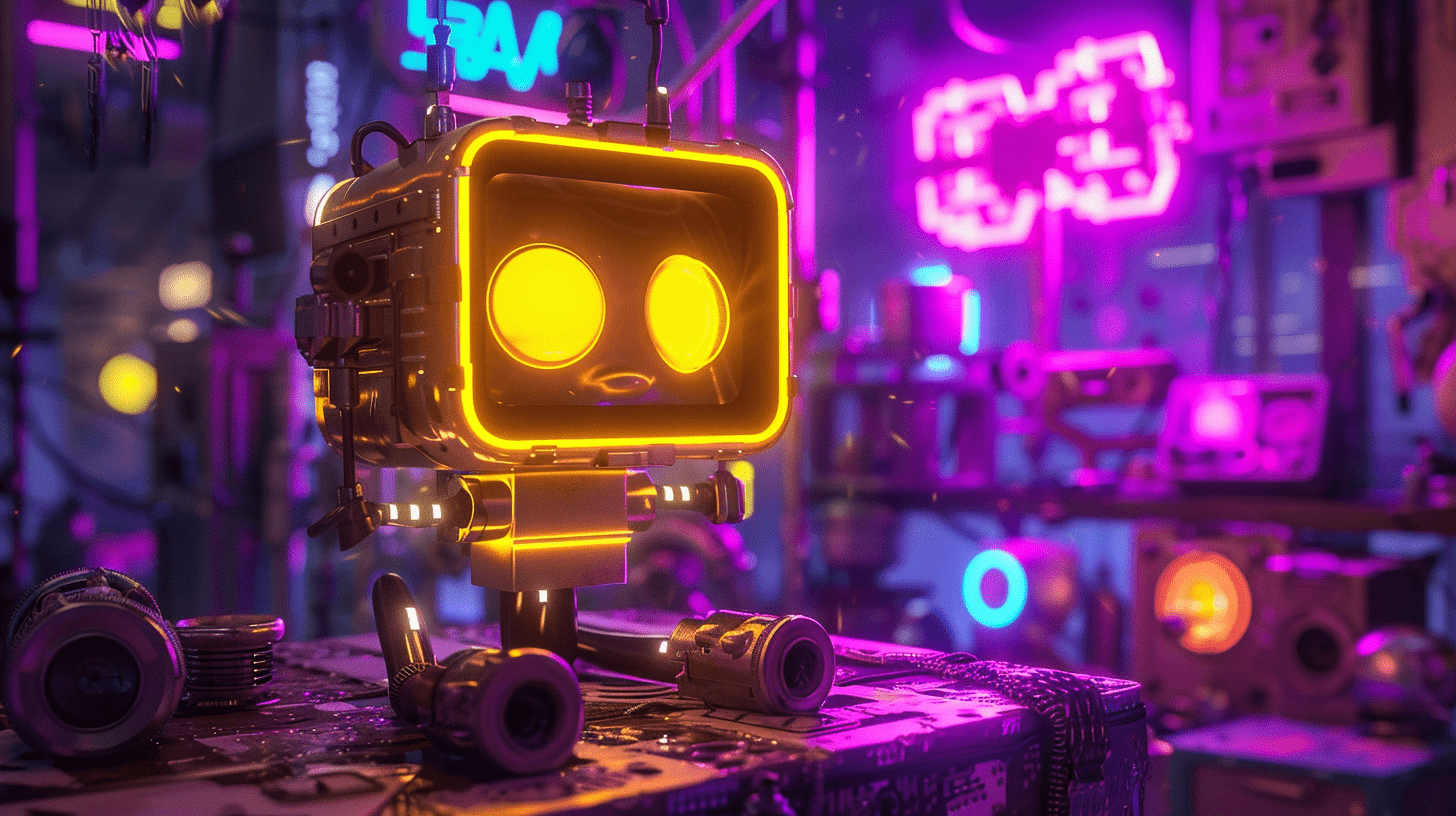
Future Trends in AI and Crypto Gaming
As AI technology continues to evolve, its integration into crypto gaming is expected to deepen, bringing about transformative changes in how games are designed, played, and monetized. Here are some predictions and potential developments in the future of AI in crypto gaming:
Predictions for the Future Integration of AI in Crypto Games
- Advanced Personalization
AI will increasingly be used to create hyper-personalized gaming experiences. This could involve AI learning from a player's entire gaming history across multiple platforms to tailor content, challenges, and interactions specifically to their preferences and playstyle.
- AI-Generated Content at Scale
The use of AI for procedural content generation will become more sophisticated, allowing for the creation of entire game worlds, storylines, and characters without human intervention. This could lead to games that are virtually endless, with new content generated on demand.
- Smarter NPCs and Dynamic Worlds
Non-Playable Characters will become more intelligent, capable of complex interactions and learning from player behavior. Game worlds will also become more dynamic, with AI driving ecosystems, economies, and social interactions that evolve in real-time based on player actions and external factors.
The Potential for AI to Revolutionize In-Game Economies, Content Creation, and Player Interactions
- In-Game Economies
AI will play a crucial role in managing decentralized in-game economies, ensuring balance and fairness while responding to market dynamics. This could involve AI setting prices, adjusting resource availability, or even predicting and mitigating economic bubbles within the game.
- Content Creation
AI-driven content creation will become a cornerstone of game development, enabling the rapid production of assets, levels, and even entire game modes. This could lead to a new era of user-generated content, where players themselves use AI tools to create and share custom game experiences.
- Enhanced Player Interactions
AI will enable more meaningful and immersive player interactions, both with NPCs and with other players. This could include AI-driven matchmaking systems, social features that adapt to player behavior, and virtual assistants that help guide players through complex game mechanics.
The Evolving Relationship Between AI, Blockchain Technology, and Gaming
- Seamless Integration of AI and Blockchain
The synergy between AI and blockchain technology will continue to grow, leading to more secure, transparent, and efficient gaming ecosystems. AI can enhance blockchain's capabilities by improving data analysis, transaction verification, and smart contract execution.
- Decentralized AI Systems
As blockchain technology enables decentralized networks, we may see the emergence of decentralized AI systems in gaming. These systems could allow for community-driven AI development, where players contribute to and shape the AI models that govern their games.
- AI-Enhanced DAOs in Gaming
Decentralized Autonomous Organizations (DAOs) will likely become more prevalent in the gaming industry, with AI playing a central role in their operation. AI can help manage and automate the decision-making processes within these DAOs, ensuring more efficient and democratic governance of gaming communities and ecosystems.

Conclusion
The integration of AI into crypto gaming is set to revolutionize the industry, bringing unprecedented levels of personalization, content creation, and economic management. As AI technology continues to advance, it will enable more immersive, dynamic, and fair gaming experiences, pushing the boundaries of what is possible in the digital gaming landscape.
For developers, the potential of AI in crypto gaming represents a vast, untapped frontier. By exploring and harnessing these technologies, they can create games that are not only more engaging and profitable but also more aligned with the evolving expectations of players.
In conclusion, AI is poised to transform the crypto gaming industry in profound ways, from enhancing player experience to revolutionizing game design. As we move forward, the collaboration between AI, blockchain technology, and gaming will unlock new possibilities, making the future of gaming more exciting and innovative than ever before.
